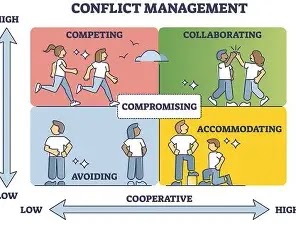Understanding the Thomas-Kilmann Conflict Mode Instrument: A Comprehensive Guide to Effective Conflict Resolution
The Thomas-Kilmann Conflict Mode Instrument (TKI) is a widely recognized tool designed to assess how individuals typically respond to conflict situations. Developed by Kenneth W. Thomas and Ralph H. Kilmann in 1974, the TKI evaluates conflict-handling styles based on two fundamental dimensions: assertiveness and cooperativeness. This assessment identifies five distinct modes of behavior—Competing, Collaborating, Compromising, Avoiding, and Accommodating—each representing different approaches to conflict resolution.
Understanding one's dominant conflict style can enhance self-awareness and improve interpersonal relationships, both personally and professionally. For instance, the Competing mode is assertive and uncooperative, often employed when quick, decisive action is necessary. In contrast, the Collaborating mode is both assertive and cooperative, aiming for mutually beneficial solutions through open communication and joint problem-solving.
The TKI is extensively utilized in various settings, including organizational development, leadership training, team building, and conflict management. It provides valuable insights into how different conflict-handling styles affect interpersonal and group dynamics, enabling individuals and teams to choose the most appropriate approach for any given situation.
By learning about the five conflict-handling modes and identifying which ones they tend to use, individuals can make more informed decisions about how to respond to conflicts, leading to more positive and productive outcomes.



Comments
Post a Comment